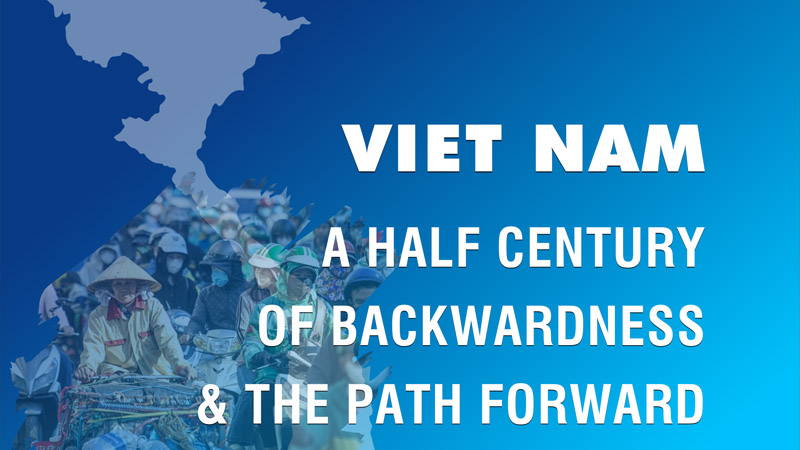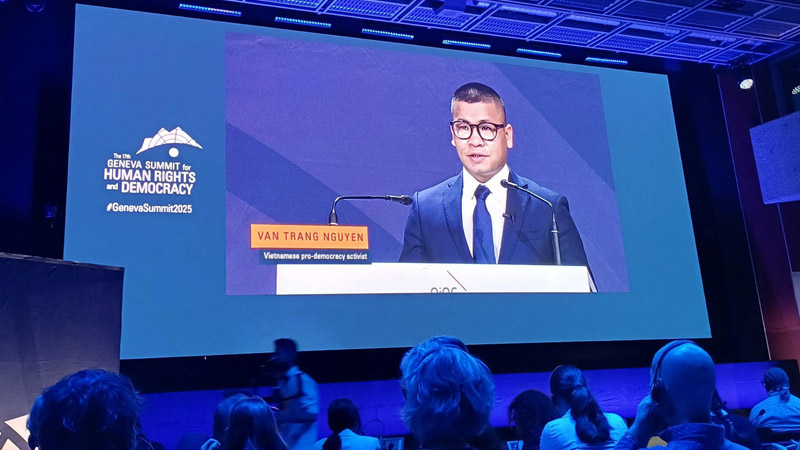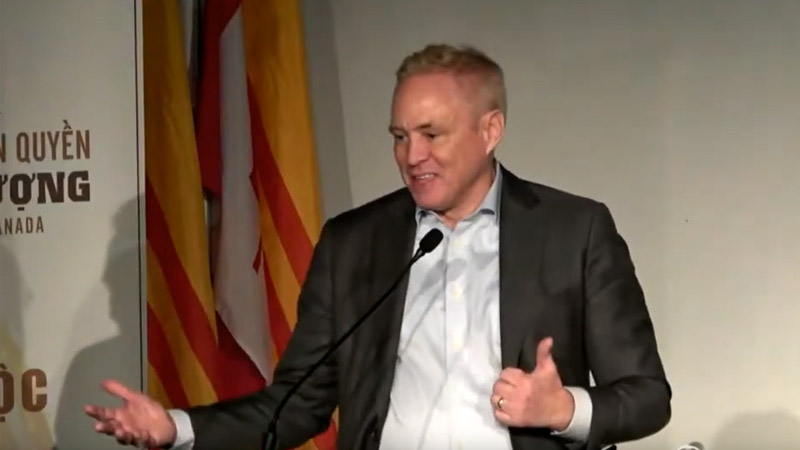LEADERSHIP COUNCIL FOR HUMAN RIGHTS
CHRC briefing: A presentation by U.S. Embassy Hanoi DCM Jon Aloisi 2-12-08
Viet Nam could be on a trajectory to multi-party democracy in the next fifteen or twenty years, according to Jon Aloisi, the Deputy Chief of Mission at the U.S. Embassy in Hanoi.
Speaking at a briefing held by the Congressional Human Rights Caucus on Tuesday, Aloisi recognized the severe human rights problems in Viet Nam, but also emphasized the speed of, and potential for, change within the country. There exists a strong desire for economic growth and a positive image both domestically and internationally, which is spurring some development, he said.
Regarding recent demonstrations over church land seized by the Vietnamese government several decades ago, Aloisi remarked: “I’m delighted that the Catholics feel they can organize protests to get their land back. It’s a positive sign of the evolution of leadership that has only been possible due to activism.”
One element of the change taking place in Viet Nam entails the improved technology available to dissenters – namely, the Internet. There have been attempts to control and monitor this forum for expression, including requirements that people register to use Internet cafes, but these restrictions are “overwhelmed by the tsunami of information flowing into this very young and literate country,” Aloisi said. Yet this is still a country that “reserves the right to drag away any of its citizens, put them in jail and throw away the key,” he added.
The red line, or point at which individuals will start to get in trouble with the government, is when these opinions become attempts to organize people for regime change. “You could blog ‘the party sucks,’” Aloisi said. “But if you get a thousand people together and set up ‘thepartysucks.com,’ you’ll get in trouble.”
In addition to the Internet activists, Vietnamese dissidents of all types continue to be arrested for political reasons. CHRC Director Hans Hogrefe, said that even when political prisoners are released, sometimes following international pressure, they still face severe restrictions on their movement and activities.
Aloisi also discussed the corruption pervading the Vietnamese government. “The entire leadership is involved in this systematic corruption,” he said. “There are some people who want to deal with it, but they don’t know how because they’re all complicit.”
In relation to the position of the hill tribes in Viet Nam’s Central Highlands region, Aloisi pointed to some positive changes over the last four years. There has been a reduction in allegations of incidents of human rights abuses, and an improvement in the ability of the United Nations refugee agency (UNHCR) and diplomats to access the area when incidents do occur. However, he emphasized that this issue is still a matter of real concern.
Viet Nam still has a considerable distance to travel along the road to reform, but Aloisi remained optimistic about the potential for progress to be made, emphasizing the importance of ongoing international pressure. “The U.N. Security Council membership is a big step,” he said. “We can use their membership to educate and push for change.”
http://www.leadership-council.org/news/2008/February/CHRCBriefingVietnam.html





